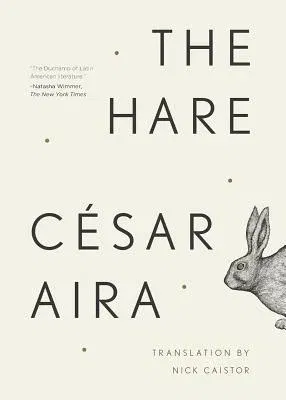César Aira
(Author)The HarePaperback, 25 July 2013

Qty
1
Turbo
Ships in 2 - 3 days
Only 1 left
Free Delivery
Cash on Delivery
15 Days
Free Returns
Secure Checkout

Part of Series
Ndp
Print Length
224 pages
Language
English
Publisher
New Directions Publishing Corporation
Date Published
25 Jul 2013
ISBN-10
0811220907
ISBN-13
9780811220903
Description
Product Details
Author:
Book Format:
Paperback
Country of Origin:
US
Date Published:
25 July 2013
Dimensions:
18.03 x
12.93 x
1.75 cm
Genre:
Hispanic
ISBN-10:
0811220907
ISBN-13:
9780811220903
Language:
English
Pages:
224
Publisher:
Series:
Weight:
240.4 gm